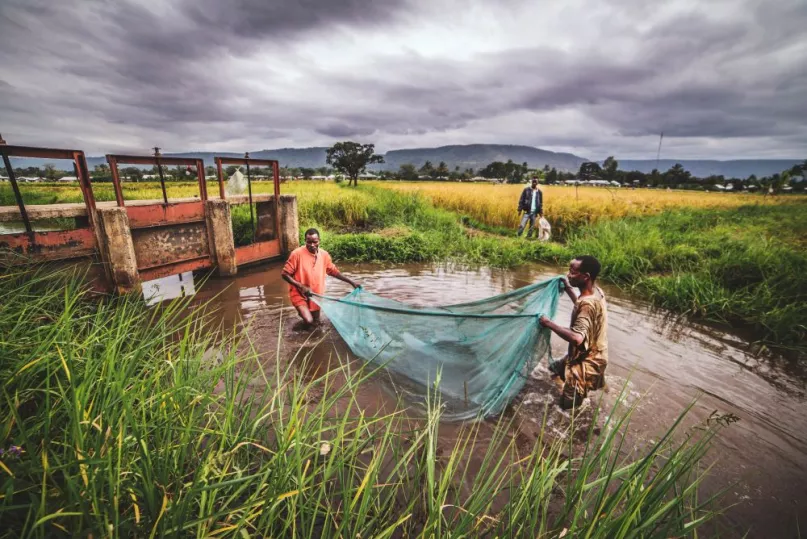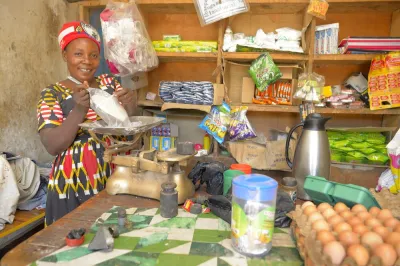Guide to Climate Change and Financial Inclusion

Climate change is one of the most pressing issues of our time. Microfinance institutions and other financial service providers who work directly with low-income populations in developing countries can play an important role in helping their clients build resilience and adapt to the effects of climate change.
Access to appropriate financial services can provide a safety net in the face of changing weather patterns, natural disasters and shifting economies. MFIs are well-placed to provide non-financial services as well, such as training and technical assistance, that can help clients adapt. Investors, policymakers and other financial inclusion organizations have a role to play in making sure financial service providers can offer this kind of support.
, through the lens of financial service providers, investors and policymakers. Climate change is still an emerging issue for the financial inclusion sector and many institutions are just starting to work on this topic, so we expect to see more publications and resources become available in the next few years.
You can find more resources in our Climate and Environment topic hub. If you know of other publications that are not in the FinDev Library, please share them with us.
Financial Service Providers
Savings and Climate Resilience
This knowledge review focuses on successes and challenges in building up climate resilience, across three dimensions: disaster preparedness, response, and adaptation to climate change.
Adapting to a New Normal
This publication presents the outcomes of the European Microfinance Award 2019 on "Strengthening Resilience to Climate Change" and shares best practices on how financial institutions can help increase their clients' resilience.
Building Resilience Through Financial Inclusion: A Review of Existing Evidence and Knowledge Gaps
The review explores evidence on the impact of financial services in increasing investment in the face of risk, strategies for risk reduction, facilitating risk preparedness and responding when a shock hits.
The Role of Microfinance in Household Livelihood Adaptation in Satkhira District, Southwest Bangladesh
This study finds evidence that microfinance facilitates coping by reducing sensitivity to environmental and climate hazards. However, credit limits are likely to restrict its role to incremental adaptations, which may not meaningfully reduce vulnerability.
Climate Change and Financial Inclusion
This brief summarizes existing evidence from rigorous randomized control trials that suggest ways in which financial services can help the poor build their resilience and mitigate the risks associated with climate change, as well as reduce contributions to climate change.
Investment
Investing in Financial Inclusion for Climate Resilience and Adaptation: The Role of Islamic Financial Services
This briefing note was prepared ahead of the UN Climate Summit in 2019 to examine the opportunities for investing in Sharia-compliant financial products.
Microfinance for Climate Adaptation: From Readiness to Resilience
This research brief establishes the case for enabling microfinance through intermediated concessionary climate finance and provides existing examples of local bank and microfinance mechanisms and solutions currently in place.
Policy
Disaster Resilience Through Financial Inclusion
This special report examines the roles of financial regulators in disaster risk reduction from a financial inclusion perspective and highlights examples of good practices in the AFI network.
Inclusive Green Finance: From Concept to Practice
This study explores the overlaps of green finance and financial inclusion in addressing the issues of environmental change, financial stability, and social equity, and calls for the integration of both finance concepts into the emerging inclusive green finance (IGF) policy area.
Inclusive Green Finance: A Survey of the Policy Landscape (Second Edition)
This second edition of AFI’s Inclusive Green Finance Policy Landscape Survey reveals new and emerging policy practices that are guiding the transition to more inclusive and resilient low-carbon economies.
Reserve Bank of Fiji’s Experience With Financial Inclusion and Climate Change
This case study examines the early work of the Reserve Bank of Fiji to enact policies that will transition Fiji’s financial sector to a green economy and help the population cope with the financial losses of climate change and adapt to new livelihoods and environmental realities.
Climate Smart Financing for Rural MSMEs: Enabling Policy Frameworks
This policy document presents a synthesis of the key lessons and implications of climate change needs and solutions for MSMEs in developing countries with an emphasis on the implications for governments and development agencies to consider.


